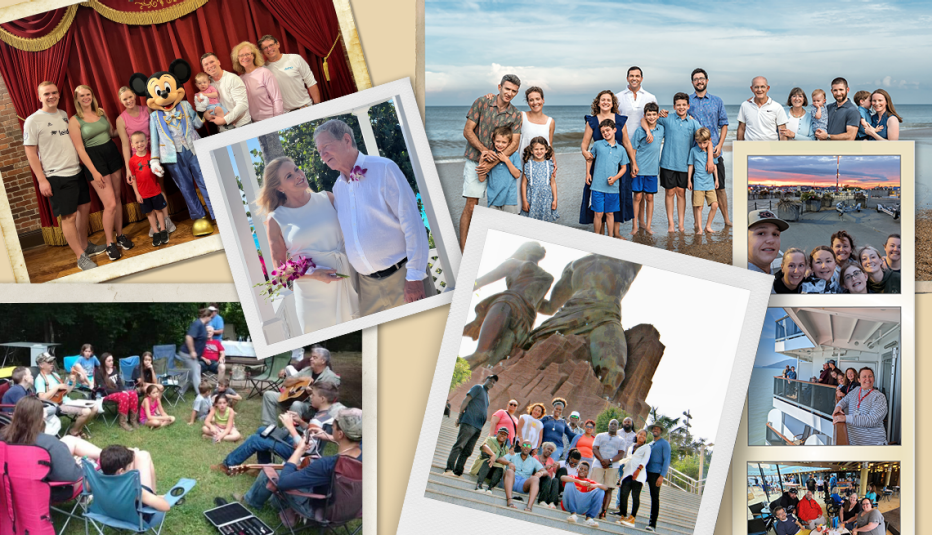AARP Hearing Center
If you are considering traveling with your parents or an older family member, you might be wondering, Where do I start? There are a few things to consider when traveling with a person in their 70s or older. This step-by-step guide will help you to plan a trip so that everyone has a great time.
The planning phase
Step 1: Spend time with your parent before the trip
If you haven’t spent time with your parents recently, you might envision them with the same amount of energy and mobility they had when you were growing up. But as they aged, their ability to do things may have changed.
Austin Naughton, 52, traveled regularly with his father who was in his 90s and his 87-year-old mother. During a trip, his siblings, who hadn’t seen their parents in a while, were surprised at how much care they required. “They just needed more care than I think my siblings had been aware of,” says Naughton. If you can spend time with them before your vacation, then you will get a better sense of what they can handle while traveling.
Step 2: Discuss ideas for the vacation
You and your parent can discuss all the particulars of a vacation like the destination, time of year, cost and length of the trip. This will ensure everyone is on the same page and that all will have a fun time.
“You have to include your parents in the discussion so they have a sense of agency. And it’s an exciting part of the phase,” says Geneviève Spicer, founder of Paris for Seniors. She regularly travels with her 87-year-old mother.
Spicer also recommends planning your trip at least six months in advance. “The most important thing when planning a trip with your elderly parents is preproduction. You have to start early,” she says. This will give you time to research and provide you with more options for accommodations, tour companies and airfare.
Step 3: Research accommodations, tour guides and restaurants
Once you have figured out the details of your trip, you can research lodgings, tour guides and restaurants. If your parent has accessibility needs or they aren’t easily mobile, it’s important to make sure the places are able to accommodate their needs. Naughton also tries to duplicate routines that his parents have at home. “What is it that they need at home that can be replicated at a hotel?” he asks.
Naughton would book a hotel that offered breakfast so his parents could take their medications without leaving the hotel. He also booked a first-floor room with a shower instead of a bathtub so they wouldn’t need to step over it. Another important feature was a room with a sofa bed or a lounge chair so that his parents could sit in it if their backs were feeling sore.
Another reason to book a first-floor room is when a hotel doesn’t have an elevator. Jill Schildhouse, 48, a freelance journalist, travels regularly with her parents, both 72. She stayed with her mom at a boutique hotel without an elevator, so she booked a ground-floor room. Even though her mom doesn’t have accessibility issues, climbing a lot of stairs would have been challenging for her.
Using a tour guide at your destination is a great way to sightsee, but it’s important to make sure they offer accessibility features and are willing to move at a slower pace if necessary. Nathan Fluellen, 44, the creator and host of World Wide Nate, suggests using tour guides. He has traveled to seven continents with his 77-year-old mother and says that using a tour guide “alleviates the work or the stress of trying to figure out planning every single part of the trip.”




































































